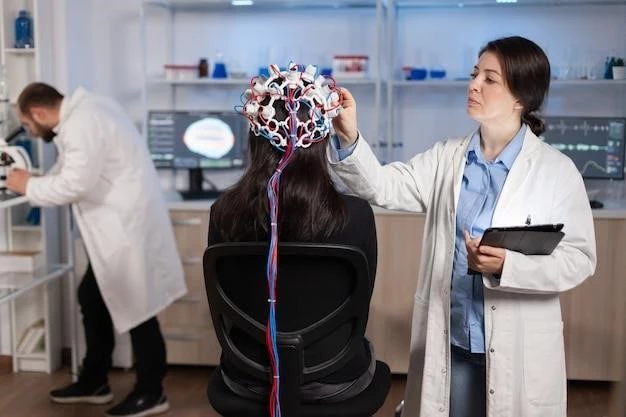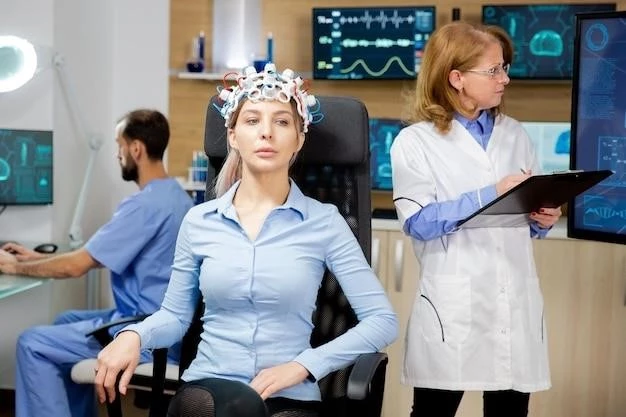Causes of Cerebellar Degeneration
Cerebellar degeneration can be caused by various factors such as genetics, autoimmune diseases, infections, tumors, stroke, or exposure to toxins. Genetic mutations or disorders can play a significant role in the development of cerebellar degeneration, affecting the structure and function of the cerebellum. Autoimmune conditions like multiple sclerosis can lead to the immune system mistakenly attacking the cerebellum. Additionally, certain infections, such as viral infections or prion diseases, can damage the cerebellum. Tumors in the cerebellum or brainstem can also cause degeneration, as well as strokes that disrupt blood flow to the cerebellum. Exposure to toxins like alcohol or certain medications may contribute to degenerative changes in the cerebellum.
Symptoms and Diagnosis of Cerebellar Degeneration
Cerebellar degeneration can manifest through symptoms like coordination difficulties, tremors, slurred speech, and impaired balance. Diagnosing the condition involves physical exams, neurological assessments, imaging tests (MRI, CT scans), and blood tests. Symptoms may vary depending on the underlying cause of degeneration. Early diagnosis is crucial for managing symptoms effectively and implementing appropriate treatment strategies. Healthcare professionals use a combination of tests and evaluations to determine the presence and extent of cerebellar degeneration, helping to tailor treatment plans for individual patients.
Treatment Options for Cerebellar Degeneration
The treatment of cerebellar degeneration aims to manage symptoms and address the underlying cause when possible. Depending on the individual’s condition, treatment may include physical therapy to improve balance and coordination, speech therapy for speech difficulties, and occupational therapy to enhance daily living skills. Medications such as those for tremors or muscle stiffness may be prescribed. In cases where cerebellar degeneration is due to an underlying condition, treating that condition may help slow down degeneration. Supportive care and assistive devices can also improve quality of life for individuals with cerebellar degeneration.
Research Advances in Cerebellar Degeneration
Ongoing research into cerebellar degeneration focuses on understanding the cellular and molecular mechanisms underlying the condition, exploring potential therapeutic targets, and developing innovative treatment strategies. Advances in neuroimaging techniques, genetic studies, and biomarker discovery are enhancing early detection and personalized management approaches. Clinical trials are investigating novel medications, gene therapies, and stem cell-based interventions to slow disease progression and improve quality of life for individuals with cerebellar degeneration. Collaborative efforts between researchers, clinicians, and patients are crucial for translating scientific discoveries into effective clinical practices.
Living with Cerebellar Degeneration⁚ Coping Strategies

Living with cerebellar degeneration can be challenging, but coping strategies can help individuals manage their symptoms and maintain their quality of life. Strategies such as maintaining a healthy lifestyle, participating in physical and occupational therapy, using assistive devices, seeking emotional support through counseling or support groups, and adapting the environment to improve safety and accessibility can all be beneficial. Education about the condition and its progression, along with effective communication with healthcare providers, family, and caregivers, are essential for coping with the challenges of cerebellar degeneration. Developing a positive mindset and focusing on abilities rather than limitations can also aid in coping with the condition.
Rehabilitation Techniques for Cerebellar Degeneration
Rehabilitation for cerebellar degeneration aims to improve balance, coordination, and overall functioning through targeted exercises and therapies. Physical therapy focuses on enhancing muscle strength and flexibility, gait training, and coordination exercises to maximize mobility. Occupational therapy helps individuals with daily living activities and fine motor skills. Speech therapy can address speech and swallowing difficulties that may arise. Assistive devices like canes, walkers, or adaptive technologies can aid in improving independence. Customized rehabilitation programs tailored to individual needs and abilities are essential for optimizing outcomes and enhancing quality of life for those living with cerebellar degeneration.
Genetic Factors in Cerebellar Degeneration
Genetic factors play a significant role in cerebellar degeneration, with inherited conditions such as spinocerebellar ataxias and Friedreich’s ataxia contributing to the development of the disease. These genetic disorders impact the structure and function of the cerebellum, leading to symptoms such as coordination problems, tremors, and difficulties with speech and swallowing. Understanding the specific genetic mutations involved can help in diagnosing and managing cerebellar degeneration. Genetic testing and counseling are crucial for individuals with a family history of these conditions, providing valuable information for early intervention and personalized treatment plans.
Impact of Cerebellar Degeneration on Daily Life
Cerebellar degeneration can have a profound impact on daily life, affecting essential functions such as movement, coordination, speech, and swallowing. Individuals may experience challenges with balance, fine motor skills, and mobility, impacting their ability to perform everyday tasks independently. The cognitive impacts of cerebellar degeneration, including difficulties with attention, memory, and executive function, can also affect daily activities. Emotional well-being may be impacted due to the progressive nature of the condition. Adapting living spaces, utilizing assistive devices, and implementing coping strategies can help individuals maintain independence and quality of life despite the challenges posed by cerebellar degeneration.
